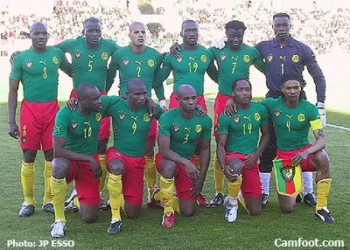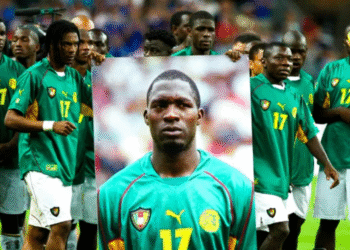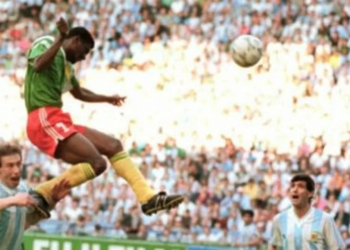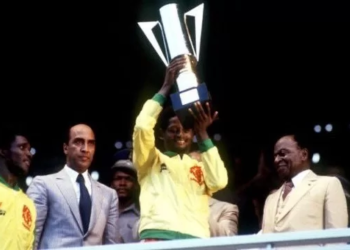Italia ’90, on the whole, did not certainly set the world on fire laced as it was with defensive play and decisions most often made through spot-kicks. But at least the start of the tournament was quite dramatic as Cameroon pulled off a major upset with a 1-0 win over reigning champion Argentina to stylishly announce its arrival.
With Diego Maradona still very much close to peak form and the nucleus of the Argentine squad made up of almost the same team members that helped the South American country to its second title in Mexico, hardly any thought was given to the Africans making only their second appearance in the World Cup. Argentina was tipped by many to rule the world for a further four years and the Africans were only expected to provide shooting practice for the champion side at the San Siro stadium in Milan, which days prior to the opening game was renamed in honour of Guiseppe Meazza, the Italian star of 1934 and 1938.
The start had nothing to suggest otherwise as Argentina established control almost straightaway and came close to opening its account in the fourth minute before Abel Balbo, left to score in front of an open goal, stumbled over the ball. A few minutes later, an overlapping Nestor Fabbri was to cause further panic in the Cameroon defence as he raced clear with a loose ball and came up with a brilliant right-footer which was blocked by Thomas Nkono, the rival custodian, in the nick of time.
But as time wore on, it was apparent that Cameroon could not simply be written off, particularly as the Africans were tight in defence and threatened to thrive on quick counterattacks. And what had a telling effect was Cameroon’s game-plan to restrict Maradona. The maestro, marked by two and at times three players, was given few touches to the ball and thus failed to inspire Argentina.
Not long after it had proved its credentials, Cameroon had a golden opportunity to forge ahead when an attack down the middle saw Emmanuel Makanaky almost take advantage of the confusion that prevailed in the Argentine defence. His shot was weak but still threatened to put his team ahead before Nestor Lorenzo managed to hook the ball just wide of Nery Pumpido.
The teams were level 0-0 at half-time, but the Africans continued to impress as they kept the rival defence guessing with quick interpassing. Cameroon, however, was reduced to 10 men a few minutes past the first hour when Andrea Kana Biyik was ejected for a crushing foul on Argentine substitute Claudio Cannigia. Not getting disheartened by this spell of bad luck, the Africans went into the lead exactly five minutes later when Francois Oman Biyik, given a free-header off a free-kick, directed the ball into the rival goal through the legs of Pumpido.
With no fightback from Argentina as Maradona was being tightly marked by the rival defence, Cameroon continued to excel in attack as its forwards stretched the Argentine defence time and again with their quick runs down the middle and through the flanks. In the dying minutes, the Africans received another body blow when Benjamin Massing, who had earlier got a yellow card for a foul on Maradona, was also sent off after a blatant foul on Cannigia. Though reduced to nine men, Cameroon refused to budge and with its defence warding off the Argentinian raids, was soon on its way to a famous victory. The `Indomitable Lions’ had arrived. – A. Vinod.
(c) 2002 Katsuri & Sons Ltd.













